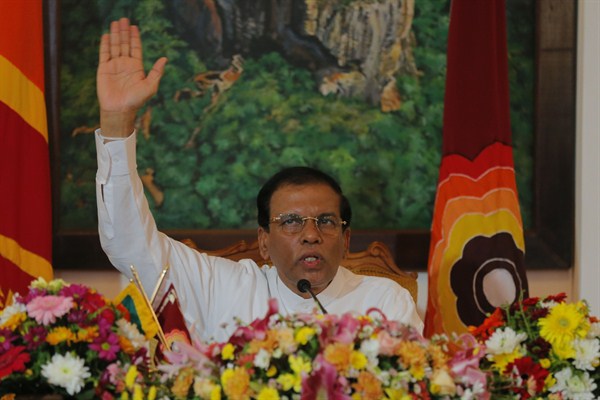It has been a bad year for former Sri Lankan President Mahinda Rajapaksa and his nationalist support base, which comes predominantly from the country’s majority Sinhalese ethnic group. Rajapaksa’s rout in January’s presidential election, followed by his August defeat in parliamentary elections, can be seen as nothing short of a mandate from the Sri Lankan people to distance themselves from his authoritarian tendencies and divisive policies and move toward political reform and reconciliation.
Rajapaksa managed to secure a parliamentary seat in Kurunegala district, a stronghold of the United People’s Freedom Alliance in the Sinhalese heartland. But his dissident faction of the UPFA was unable to win enough seats to force President Maithripala Sirisena, who defeated him in January and heads the UPFA, to reconsider his appointment of Ranil Wickramasinghe of the rival United National Party (UNP) as Sri Lanka’s prime minister. While the UNP overcame the threat of a resurgent and re-energized Rajapaksa and won the August elections, it failed to gain a majority of seats in parliament. In a sign of Sri Lanka’s domestic stability, the UNP entered into a unity government with the UPFA last month.
August’s results were a relief to Sri Lanka’s minority Tamil and Muslim communities, which voted in significant numbers—the culmination an eight-month-long political transition in which Rajapaksa, although marginalized, was not entirely vanquished. Indeed, for Sirisena, Wickramasinghe and much of the Sri Lankan electorate seeking to bring about tangible reforms, the only way to overcome Rajapaksa’s specter is to deliver on the reforms promised following the January and August elections.

